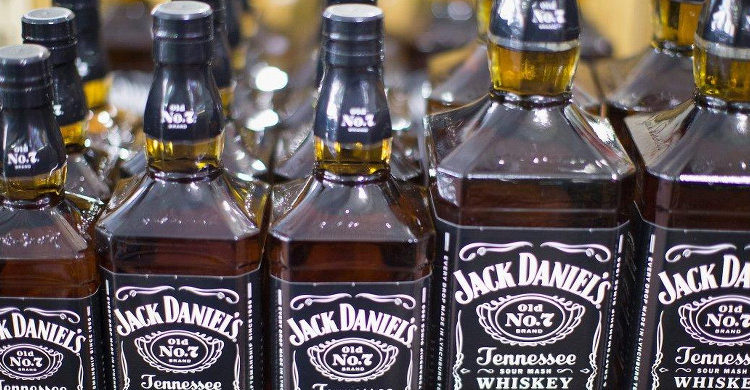América del Norte/EEUU/Julio 2016/Autor: Shaun King/ Fuente: New York Daily News
Resumen: Ninguna historia es más verdadera y profundamente americana que la historia del whisky Jack Daniels y la familia Brown. George Garvin de Brown aprendió a hacer whisky de un hombre negro llamado Nearis Green. Nearis, un destilador altamente cualificados, un estadounidense esclavo que era propiedad de Dan Call.
Listed at #20 on the Forbes list of America’s wealthiest families is the Brown family. Their combined net worth is $12.3 billion. Their most known product?
Jack Daniels whiskey. It’s now sold in over 170 countries and is a complete cash cow — racking up billions of dollars a year for investors and for the Brown family itself. George Garvin Brown, their great-great-great-grandfather, founded the company exactly 150 years ago this year. Jack Daniels is now the best selling whiskey in the world. Its iconic black logo and angular bottles are instantly recognizable.
They’ve kept it in the family. George Garvin Brown IV is now the chairman of the company board. He’s filthy rich, received degrees all over the world, fancies ski vacations, and considers himself a «wine geek.»
No story is more truly and deeply American than the story of Jack Daniels whiskey and the Brown family. By truly and deeply I mean that the company, a century-and-a-half after its founding, is now publicly admitting that the down-home story they’ve always told about George Garvin Brown learning how to make the whiskey from an old white preacher named Dan Call is a lie.
George Garvin Brown learned to make whiskey from a black man named Nearis Green. Nearis Green, a highly skilled distiller, was also an enslaved American owned by Dan Call.
So, please allow me to reframe the story of Jack Daniels whiskey a bit.
A white Christian preacher in Lynchburg, Tenn., «owned» people. One of those people he «owned» was Nearis Green, a black man who was a skilled distiller of liquor. That black man, a slave, taught George Garvin Brown how to make whiskey. The recipe and methods were deeply African.
For 150 years the story of how this whiskey came to be, who taught George Garvin Brown how to make it, and why it succeeded, though, was as white and Eurocentric as a story could be.
Even as late as last year, Jack Daniels was distributing carefully crafted infographics on the founding of the company — that never mention a single word about Nearis Green. Hundreds of thousands of people per year have been touring the Jack Daniels museum without a single mention of Nearis Green — not because his contribution was only recently discovered, but because the reality and truth of the company is far more complex and messy than they’ve ever really wanted to admit.
That, ladies and gentlemen, is the United States of America in a nutshell. How this country was founded, how wealth was made, and how it all has been maintained for centuries is not beautiful, but ugly and often malicious.
Cultural appropriation is not just white women wearing cornrows or Bantu knots and pretending like they came up with it. It is also taking what an enslaved black man taught you, building a multi-billion dollar corporation off of it, then erasing his entire contribution from the history books as if he never existed.
Nearis Green was a highly skilled genius, but all of the benefits from such a fact have been reaped by generation after generation of another man’s family.
Now, think of the story of Nearis Green and read this quote from the recent speech Jesse Williams gave at the BET Awards:
«We’ve been floating this country on credit for centuries, yo. And we’re done watching and waiting while this invention called whiteness uses and abuses us, burying black people out of sight and out of mind while extracting our culture, our dollars, our entertainment like oil, black gold. Ghettoizing and demeaning our creations, then stealing them, gentrifying our genius, and then trying us on like costumes before discarding our bodies like rinds of strange fruit. The thing is though, that just because we’re magic doesn’t mean we’re not real.»
Cultural appropriation is not cultural appreciation. It’s theft. It’s plagiarism. It’s revisionist history.
Fuente de la noticia: http://readersupportednews.org/opinion2/277-75/37771-jack-daniels-secret-history-shows-the-recipe-was-actually-developed-by-a-black-slave
Fuente de la imagen: http://readersupportednews.org/images/stories/article_imgs21/021677-jd-070116.jpg






 Users Today : 100
Users Today : 100 Total Users : 35460006
Total Users : 35460006 Views Today : 145
Views Today : 145 Total views : 3418610
Total views : 3418610